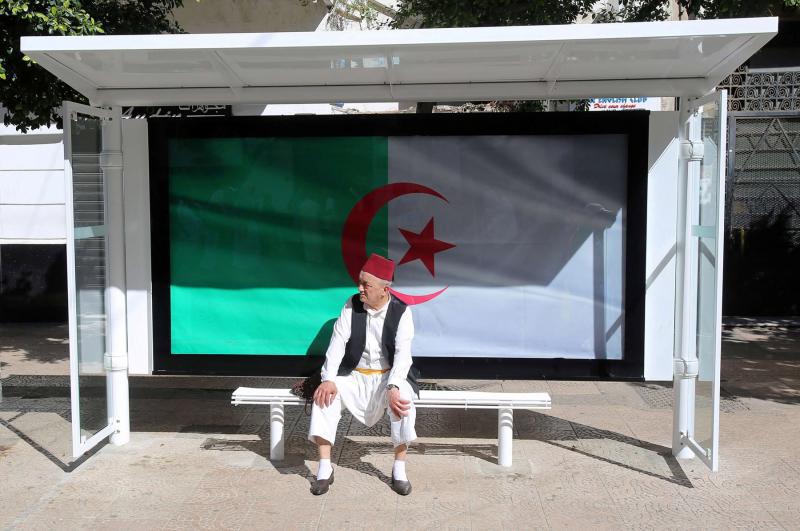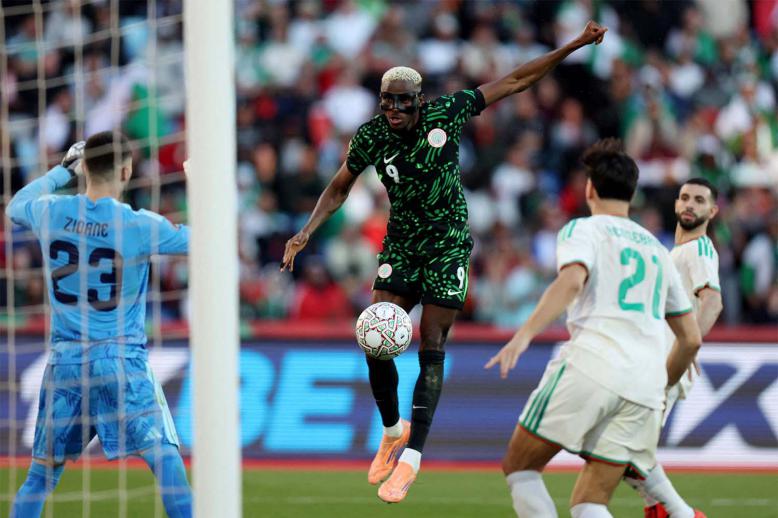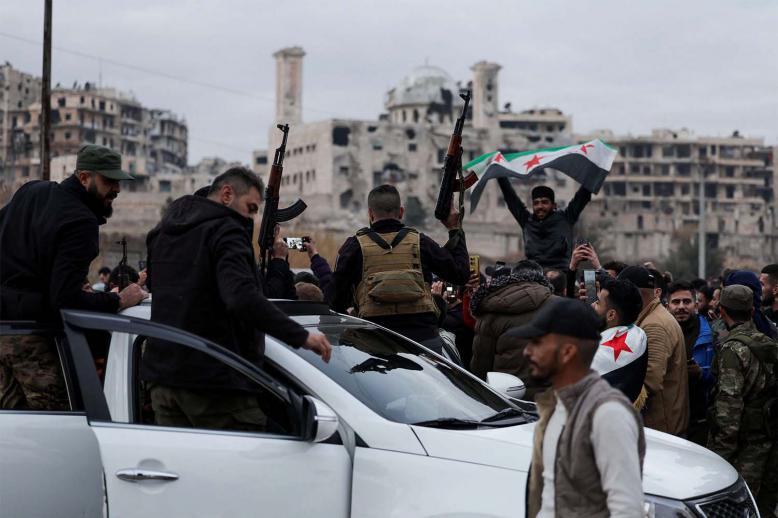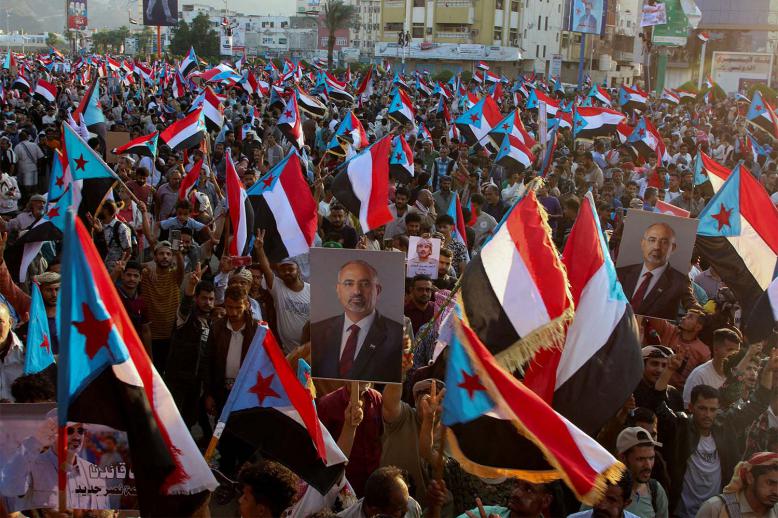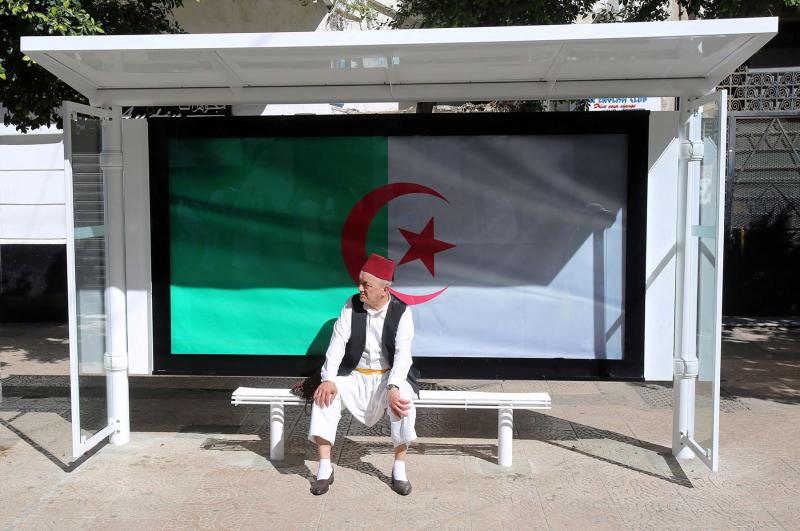Foreign interference sparks heightened concern in Algeria
Algerian military officers and many ordinary Algerians are expressing, usually in private, concern at the pressure foreign countries are putting on their country, given the uncertainty about the course of events.
The concern is heightened by the civil war in Libya, where foreign interference is complicating any solution to the 8-year-old conflict.
However, it makes no sense to compare the two North African countries. Algeria is a long-standing state that continues to function well on a day-to-day basis and the production of oil and gas has not been affected by strikes or attempted sabotage. Massive demonstrations may have slowed industrial and farming production but not much.
The absence of violence and avoidance of provocation mean the Algerian economy continues to function. This stands in sharp contrast to Libya.
The major foreign partners of Algeria are naturally inclined to use this interregnum to weigh in on the country’s internal and external policies, albeit in private, more actively than they might normally. Hence, the strong pressure the French ambassador exercised to get Algerian entrepreneur, Issad Rebrab, released from jail.
Rebrab benefited throughout his rise to wealth from the strong support of the former head of intelligence, Mohamed Mediene, who is now disgraced. Rabrab has many friends abroad, notably in France, where he has bought several companies.
The French have never been shy of intervening in Algeria, where many businessmen, officers and political personalities have been happy to oblige. Hence, the well-documented Hizb Franca, which, over decades, played an important role in shaping certain decisions.
French President Emmanuel Macron is very keen to see the Algerian Army deploy men in the Sahel to fight Islamist terror groups because the motley assembly of African and European forces that has been assembled is not, it would appear, doing a very good job. Terrorist incidents are spreading across more national borders.
Algeria’s military chiefs are adamant they will not send soldiers to get further involved in a conflict that is the result of long-standing, complex causes — some ethic, others political or economic and aggravated by the flow of cocaine from Latin America — that are fuelling violence.
Those officers and Algerian diplomats have not forgotten that their warnings to Paris, London and Washington about the consequences of a collapse of the Libyan regime in 2011 went unheeded. Indeed, they were brushed aside with contempt.
When he was elected two years ago, Macron gave the impression he understood the Algerians better than his predecessors but appearances proved deceptive. Macron did his reputation in Algeria no good by insisting that a fifth mandate for Abdelaziz Bouteflika would be to the benefit of the Algerian people.
Macron has no more overall strategic vision for the Maghreb and the Sahel than his predecessors.
Many senior French officials are prone to lecture the Algerians and Tunisians — though not the Moroccans — rather than listen to them and treat them as equals. The French were surprised by the demonstrations in Algiers but then they were also surprised by Zine el-Abidine Ben Ali’s ascent to power and fall in Tunisia.
The Russians, who are Algeria’s largest provider of weapons, have no desire of losing their second largest market for arms. The warning not to meddle in Algerian affairs delivered by Russian Foreign Minister Sergei Lavrov at the start of the crisis was clearly aimed at France.
The main concern, which is understandable, of France, Russia and the United States is to ensure that the regional balance of power in north-western Africa is not upset. There is little risk of this and senior Algerian officials have done their best to reassure the country’s key foreign partners.
In the Arabian Peninsula, however, the powers that be are none too happy to see a “democratic revolution” in Algeria. Indeed, they are horrified at the very thought. Beyond financing various Islamist parties and personalities, there is little they have been able to achieve.
The Algerian demonstrators fully share the suspicions of their leaders about Saudi Arabia, the United Arab Emirates and Qatar, all the more because the Bouteflika clan had powerful business links with some of the Gulf emirates.
The Algeria street — the younger generation, in particular — looks to Paris and the West, not to Mecca. When it looks to the Gulf, it is strictly in terms of job opportunities and business.
Algeria’s foreign policy, however, weakened as Bouteflika’s health deteriorated, has held fast on certain policies that are none too popular in the Middle East and the United States. It has been steadfast in its support for the Palestine Liberation Organisation; maintained good relations with Syria and Iran; and refused to join the Saudi-led coalition in Yemen.
Some capitals would dearly love to see Algeria shift its position on one or more of these cases but to no avail. Hence, foreign attempts to split the Algerian Army, which is, in the words of one senior European diplomat, a “block of marble” that refuses to budge.
The unity of the country’s powerful military is the bedrock of the stability of Algeria. Algerians and foreigners agree on that.
The army understands that the shape of the transition is yet to be decided, beyond the fact that Chief-of-Staff General Ahmed Gaid Salah has lost much credibility in recent weeks. It is worth noting that he gave no public speech May 7 or 14, after having made weekly pronouncements each Tuesday for the past three months.
Francis Ghiles is an associate fellow at the Barcelona Centre for International Affairs.
This article was originally published in The Arab Weekly.


